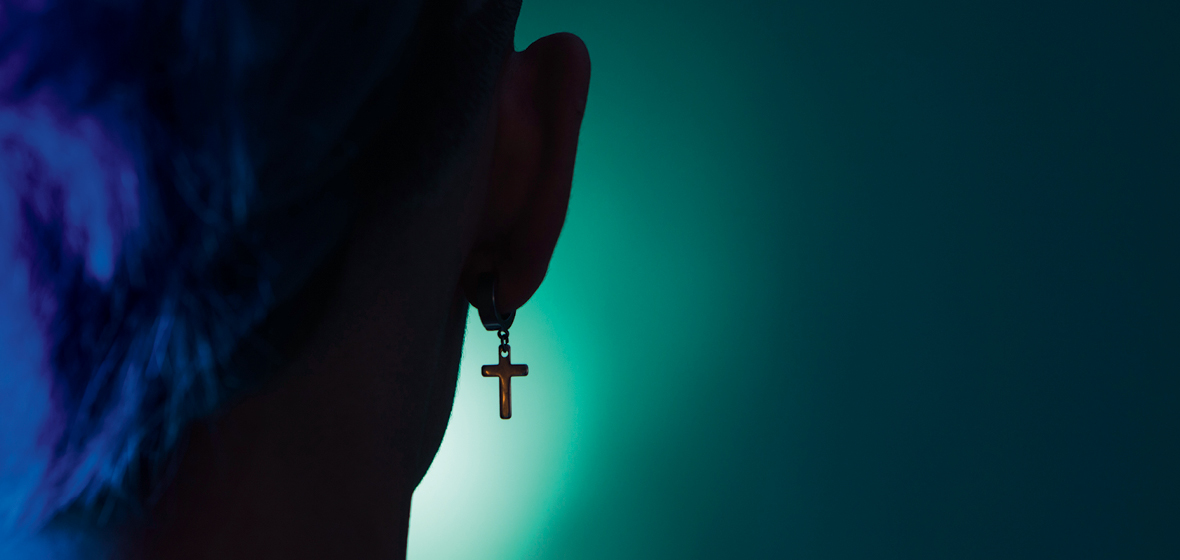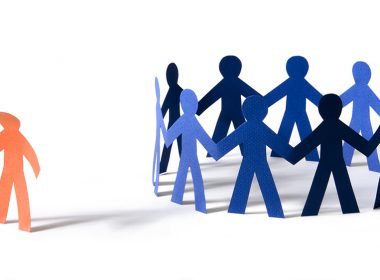Australian human rights law depends heavily on the protections provided in anti-discrimination legislation. But what happens if that law is turned on its head?
What is religion? What does it mean to engage in a religion, in good faith, in accordance with the teachings of that religion? And what is the line between a genuine statement of belief and a discriminatory comment that would harass, threaten, seriously intimidate or vilify another person?
These are all questions Australian courts could be asked if a controversial draft religious discrimination bill is enacted into law. The Attorney-General’s Department is currently sorting through about 7,000 submissions made regarding the second exposure draft, following a period of intense public scrutiny.
Legislating on the topic of religion is an extraordinarily challenging task, Attorney-General Christian Porter told the National Press Club in November, when competing sets of human rights overlap.
“Every new task I am allotted does seem to inevitably support the observation that rights in practice collide with each other rather than neatly contouring into each other,” he said, noting he had personally consulted with more than 90 different stakeholders between the first and second drafts.
It’s widely accepted that protection of religious freedom is a good thing. However, the draft bill has run into difficulty over the introduction of new rights perceived to turn discrimination law on its head.
Even the Australian Human Rights Commission, which has advocated for stronger protection against religious discrimination for two decades, is concerned. While it supports reform in the area, and parts of the second exposure draft, Commissioner Edward Santow says it can’t support the bill as a whole.
Santow, whose background is Jewish, says a person’s religious beliefs (or absence thereof) should be treated no differently than attributes like race or sex.
“History teaches us a tragic fact, and that is whatever one chooses in terms of one’s religion, others may treat you differently,” he says.
“If I’m personal about that, we saw in the 1930s and 1940s in Europe that although people might have said, ‘I don’t feel religious’ or ‘I’m not Jewish’ or ‘I have a different belief system’, it wasn’t enough to stop them from being mistreated on that basis. It should be protected.
“Our hesitation is around some of the unusual and unorthodox provisions. We asked ourselves, ‘How significant are those concerns?’ Where we’ve landed, we would prefer no reform than to allow the bill to pass in its current form. Human rights reform has to protect everyone equally, and the provisions we’re concerned about are provisions that would counteract that.”
Wielding a sword
In some ways, the package of proposed new law, which includes the Religious Discrimination Bill 2019, the Religious Discrimination (Consequential Amendments) Bill 2019 and the Human Rights Legislation Amendment (Freedom of Religion) Bill 2019, is unremarkable.
Simon Rice, a professor of law at the University of Sydney, says many of the concepts “copy and paste” elements of the sex, disability and age discrimination acts. Several of the proposed additions, however, have taken an unorthodox approach that he says reflects a flawed reform process.
Most of the debate has focused on two in particular: clauses 11 and 42.
Clause 11 states that a religious body does not discriminate if it engages, in good faith, in conduct a person of the same religion would reasonably consider to be in accordance with its teachings. Clause 42, meanwhile, says that a “statement of belief” does not constitute discrimination except if it is malicious and would likely harass, threaten, seriously intimidate or vilify another person or group of persons.
“All discrimination law is a shield. There are the regular shield provisions here, protecting people against direct and indirect discrimination on the basis of their religion, but we’ve never seen a discrimination law that empowers people to actively discriminate,” Rice tells LSJ, explaining these provisions effectively create a “sword” instead.
Sectors such as employment and education have some existing protection through a combination of statute and case law. However, this bill would also impact commerce.
In 2012, Americans Charlie Craig and David Mullins went to a bakery to order a cake for their wedding in Denver, Colorado. The owner, Jack Phillips, refused to provide one on the basis of his religious views, as he held objections to same-sex marriage. In 2018, the United States Supreme Court ruled in his favour, upholding his rights under the nation’s Constitution which include freedom of expression. While the court declined to make a wider ruling on religious exceptions for businesses, the decision was upheld 7-2.
Australia’s religious discrimination bill looks to make a similar statement about our values. Say, for example, one person makes a statement to another person in good faith – based on their genuine belief – that unrepentant sinners will go to hell. Their employer fires them. This scenario, which reflects elements of a real-life dispute that arose when Christian rugby player Israel Folau shared a controversial post on Instagram last year, is included in the Explanatory Memorandum.
Whose rights are more important – the right to freely express beliefs, or the right to not be harassed, intimidated or vilified?
Rice says that while there are no formal requirements around drafting law, it is generally accepted that good law reform will have a sound process that canvasses all views and creates a balanced policy.
“Generally, you’re looking for a process that reflects the complexity of what you’re dealing with, gives people a chance to air their views, weighs up data and evidence, looks at comparative examples overseas, and altogether creates a good piece of law. What happened here had none of that,” he says.
“This deals with people’s fundamental values. This is about questions of morality and world view, so if any law reform requires an inclusive, generous inquiry that tries to find common ground, you would think [this] would do that. This is a really bad process for the kind of law in question.”
If I’m personal about that, we saw in the 1930s and 1940s in Europe that although people might have said, ‘I don’t feel religious’ or ‘I’m not Jewish’ or ‘I have a different belief system’, it wasn’t enough to stop them from being mistreated on that basis. It should be protected.
Edward Santow
Defining religion
Many stakeholders are concerned about how these new provisions would play out in court.
In a submission on the second exposure draft, Bishop Michael Stead of the Anglican Church Diocese of Sydney expressed concern over what could be considered “reasonable” to a “person of the same religion”. This phrase is used multiple times throughout the draft, including clause 11.
“The test fails to acknowledge that many religious traditions permit reasonable disagreement on the implications of a given religious text when applied to a specific set of circumstances, but still affirm each other as fellow believers,” he noted. “There [is] a range of views among ‘Sydney Anglicans’, for example.”
He also said that, when applied in the courts, both sides would need to call a “plethora” of expert witnesses to establish what is and is not reasonable in accordance with a defendant’s religious beliefs.
Kate Eastman SC has practised discrimination law for 30 years. She tells LSJ that a number of practical concerns have become clear – not just with clauses 11 and 42, but the bill as a whole.
“The first thing I’d say that would make it difficult for the courts to make a ruling on religious belief is that the draft bill doesn’t define religion. The definition can be really broad and cover a range of beliefs, including the right to be an atheist and not have a belief,” she says.
“This bill doesn’t specify what is or isn’t a religion, which means the courts will be asked to determine this in order to decide whether a statement is one of genuine religious belief or merely discriminatory.
“Traditionally, the courts have been very reluctant to make findings on this – spiritual beliefs can be very personal and they’re not able to be proved in the same way as other matters.”
Unequal footing
There are concerns that although ostensibly the bill is designed to promote equal rights, the “sword” will allow the human rights of religious groups to trump the human rights of others.
Satanic Australia, in its submission on the second draft, said the bill was “egregiously deficient” in achieving this objective, citing treatment of Australia’s LGBTQI community as an example.
“The proposed bill succeeds in its objectives of protecting people of faith from discrimination when making statements of belief by, without apparent awareness of irony, allowing those persons to discriminate against other members of the community,” it wrote.
Dr Deirdre Palmer, President of the Uniting Church of Australia, has also addressed this concern.
“We would not want, in exercising our right to practise our religion, to violate the human rights of others,” she said, speaking at a forum in Sydney in January.
“Privileging statements of religious belief at the expense of other people’s dignity and wellbeing is not something we support. Christians in Australia are not persecuted. In Australia, churches aren’t victims. To cultivate some kind of victim status is disingenuous. We are significant, influential organisations, actively contributing in positive ways to the Australian community.”
Not all religious groups, however, enjoy that position. More than 160 organisations combined to issue a joint submission on the second exposure draft on behalf of the Australian Muslim Community. The submission raised concern over the level of anti-Muslim sentiment in Australia, citing a Griffith University survey of 1,034 Muslim Australians that indicated 76 per cent of participants were concerned about media reporting on Islam and 73 per cent worried about terrorism by right-wing extremists.
“We are deeply concerned that the free exchange of extreme hate rhetoric and [biased] narrative about Muslims as a group is contributing to [this],” they noted.
There are criminal laws in place that, theoretically, protect members of the community from hate speech and verbal assault. However, the group stated it can be very difficult to reach the requisite standard of proof in these instances.
To this end, it pointed to the effectiveness that civil remedies provided in reducing hate speech directed toward the Australian Jewish community through the Racial Discrimination Act. It proposed the current bill be redrafted in a similar way to alleviate the issue by simply providing a “shield”.
The proposed bill succeeds in its objectives of protecting people of faith from discrimination when making statements of belief by, without apparent awareness of irony, allowing those persons to discriminate against other members of the community.
Satanic Australia
Third draft
It’s not yet clear how the bill will move forward. The Attorney-General’s Department is working through submissions on the second exposure draft and it’s not known whether the third draft will again be available for public consultation or if it will simply be tabled in Parliament. There are many proposed additions, subtractions, clarifications and amendments to be considered.
Anne Robinson is the founder of Prolegis, a law firm that works exclusively in the charity, not-for-profit and philanthropy sector. She tells LSJ she doesn’t think it’s helpful to delve into specifics about the current bill lest it create a “shouting match”.
She is in favour of starting afresh with a completely new bill, in order to properly assess and balance competing rights.
“We’ve actually got some well-tried expressions used in other legislation, but the drafters of this bill have gone for all sorts of things that are novel and very clunky,” she says. “People have jumped in with very technical and detailed discussions of the wording, but the trouble with using new wording is that there are no judicial pronouncements as to what these words mean. It leads to complications.”
Robinson explains that Australian discrimination law has historically focused on protection rather than positive rights statements, which means discrimination matters can seem more like special pleadings. Laws of this kind, she says, need careful research, consultation and thought, because they need to protect the values and freedoms we want to see upheld in a civilised society.
“The drafters should look to see what is tried and what there is around the English-speaking world. It looks like they’ve jumped into this conversation and started using words and phrases that have complete disregard to what the courts have said about what these things mean. It’s a very poor start,” she says.
“I think they should go back to square one and start on a better footing.”




